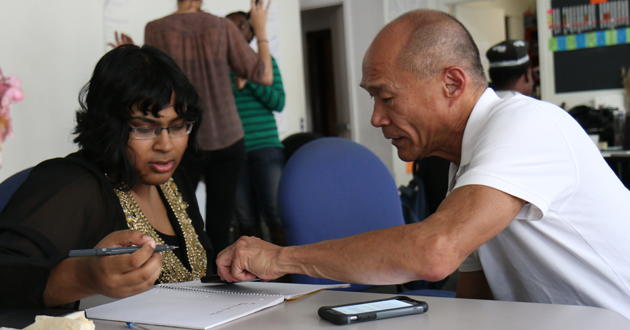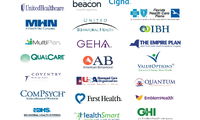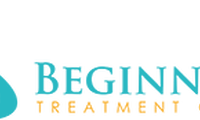Rehab After Care
 The most important step for an addict is the decision to enter rehabilitation. But this portion of treatment is only a very small period of time compared to the many years that follow in recovery. The process of living a sober life is only just beginning when the inpatient treatment period ends.
The most important step for an addict is the decision to enter rehabilitation. But this portion of treatment is only a very small period of time compared to the many years that follow in recovery. The process of living a sober life is only just beginning when the inpatient treatment period ends.
One of the greatest concerns at the end of rehabilitation is how a recovering addict will manage their daily life when they are back on the outside. The walls of a treatment center serve to make recovering addicts feel safe from their own urges and compulsions to use. When this barrier is removed, the real work must begin -- and a carefully planned aftercare program will help.
What is Addiction Rehab After Care?
Aftercare immediately follows addiction treatment and is one of the most important stages of the rehabilitation process.
In its simplest terms, aftercare is the continued outpatient treatment a person receives after leaving a treatment program or detoxification facility.
Research on the prevalence relapse has shown that adolescents and adults are vulnerable to relapse after substance abuse treatment with rates as high as 80 percent.[1] Studies have revealed the highest risk for relapse is in the first 90 days after initial treatment.[2]
But the odds of sustaining sobriety are greatly improved with continuing care interventions.[3]
What Happens During Rehab After Care?
Aftercare services help maintain and advance the coping skills learned in rehab, and help build a healthy way of life after completing a recovery program. The ultimate purpose is to keep the individual engaged in recovery as they make the transition from rehab to real life.
Specifically, aftercare services help in the following ways:
- create a structured plan that focuses on an environment that avoids temptations
- provide tools and resources when triggers and temptations are encountered
- teach relapse prevention strategies
- help with arrangements for a controlled living such as a transitional living facility
- include counseling sessions, sponsors, and group therapy
- reinforce skills learned for coping with stress and strong emotions
Types of After Care Programs for Addiction
There are many different kinds of aftercare treatment options which can help prevent relapse and expand upon the strategies learned during rehabilitation. They include:
Outpatient Treatment:
Outpatient aftercare takes place when an individual stays at their own residence while attending therapy and other useful programs a few times a week.
This option is beneficial for those who understand they need help for drug abuse or alcoholism, but have commitments to school, work, and/or family. Therapy sessions may be scheduled in the evenings or weekends to accommodate daily commitments.
Outpatient treatment works best for those who recovering from addictions with mild symptoms and have a willingness to participate in the aftercare plan.
Outpatient programs assist in continually building the skills needed to handle everyday life and problems. But in order for outpatient aftercare to be successful, sessions must be attended regularly and there must be a commitment to a drug-free life.
Group Counseling:
Group counseling is a major component of most outpatient aftercare treatment plans. They rely on peer reinforcement. Research has shown that “group therapy is a powerful therapeutic tool for treating substance abuse. One reason for this efficacy is that groups …reduce isolation and enable members to witness the recovery of others…and these qualities draw clients into a culture of recovery.”[4]
Some of the more well-known groups for substance abuse are 12-step programs such as Alcoholics Anonymous (AA) and Narcotics Anonymous (NA). These peer-oriented programs provide support and encouragement for the individual through their aftercare. During these meetings, experiences about addiction are shared, issues and concerns are discussed in a safe and anonymous environment.
These are primarily spiritual approaches to recover, but for some recovering individuals, a more secular approach may be preferred. Non-profit, alternative mutual help groups. Three of the more well-known are the non-profit groups are SMART Recovery, Women for Sobriety, and LifeRing.
For every belief and every addiction, there is a group to match the individual’s needs. Group meetings are a powerful tool in aftercare recovery.
Individual Therapy
One-on-one sessions with a therapist allow for the crucial step of more intense support, lowering the risk of relapse, and supporting the individual in ways to rebuild their lives. Individual counseling allows recovering addicts to discuss issues that they may not feel comfortable sharing in a group setting. It also allows focus on a specific area over multiple appointments.
Individualized drug and alcohol sessions focus on a variety of issues after rehabilitation:
- abstinence from drug or alcohol use
- family/social relations
- coping strategies
- triggers and tools to handle them
In these personal sessions, the addiction counselor may encourage the patient to attend 12-step groups and even help make referrals for needed supplemental services.
One of the greatest advantages to meeting with a counselor is that it provides a safe place for recovering individuals to share their feelings, express frustrations, and give voice to obstacles in living a sober life. Counselors also can identify warning signs of relapse, helping a person in recovery to get additional help or treatment if needed.
Family Therapy
During the inpatient treatment for addiction, family members may have little contact with the individual. For long-term sobriety, integrating family into the treatment and recovery plan is necessary for long-term abstinence.
Aftercare that includes counseling to mend any damaged relationships and change enabling family dynamics is essential. Family members may benefit from the following:
- Education on the process addiction and recovery as well as signs of relapse
- Attend family therapy
- Attend self-help groups specifically designed for families like Al-Anon, Nar-Anon, and Alateen
- Learning how to appropriately encourage healthy behaviors and habits such as exercising, eating well, getting enough rest, and learning how to deal with stress.
- Eliminating triggers
Transitional Living Homes
A sober living home provides a bridge between the inpatient rehabilitation and the complete freedom of living on your own. It provides a place to transition from treatment back to daily life. Studies have confirmed that this housing option sustains recovery.[5]
Some of the major benefits of these “halfway houses” include:
- A living setting that provides a combination of freedom and structure that is alcohol and drug-free
- The ability to readjust and return to life outside of a rehab facility at a person’s own pace
- A sense of community living with others, also recovering from substance abuse
- Relearning how to be responsible and accountable
- Ability to continue group and individual counseling sessions
- A stable living environment with minimal temptations
- Increases potential for maintaining long-term sobriety
Alumni Programs
If you have received treatment in a residential center, many offer alumni programs for those that have “graduated,” but continue to face challenges to their sobriety. The goal of alumni programs is to connect people with continued support.
These alumni programs usually offer:
- resources for transferring back into daily life
- weekly sober events
- telephone hotline to call for support
- in-person, online, or telephone check-in
Actively participating in an alumni program is another avenue of support when committing to a sober lifestyle
Drug Testing
Testing for drugs can be a controversial component of an aftercare program. The truth is that despite the difficulty of discussing this topic, drug tests are a tangible and objective method for determining if an individual is using. According to the National Institute of Drug Abuse, “While relapse is a normal part of recovery, for some drugs, it can be very dangerous—even deadly.”[6]
Testing and monitoring can help.
A random drug testing program may initially be met with fear and anger. But given the high percentage of relapse, monitoring a recovering addict can assist the person from returning to substance abuse. Drug and alcohol testing are not signs of a lack of trust, but a sign of accountability.
A failed drug test, it found early, can actually help further treatment plans and better design an aftercare program to get the person back on track. It may be the wake-up call to stopping a relapse before it gets out of control.
Setting Up Goals for Addiction Post-Rehab
As rehabilitation ends, it is important to meet with a counselor from the center, or addiction professional, or case manager to set up an individualized aftercare plan.
An aftercare plan must focus on the specific needs of the recovering addict. This may include housing, employment, and continued treatment. Most programs recommend that a person stay actively engaged in follow-up or aftercare for at least one year, and adolescents may need follow-up care for longer periods.
Aftercare should establish a recovery roadmap:
- Aftercare should help set realistic objectives
- Aftercare should be long enough to get a positive result and continue to address issues that affect an individual’s sobriety
- Aftercare can last anywhere from a few months to a lifetime
- Aftercare is best accomplished in a safe setting where honest communication is a priority
- Aftercare programs should be reviewed and modified over time as needs and goals change
Why Finding Addiction After Care Makes a Difference
When individuals leave a treatment program, they are often faced with a wide range of challenges such as finding living arrangements, getting a job, and gaining financial stability. That’s why aftercare treatment is such a crucial part of relapse prevention.
Lifelong sobriety cannot exist in a vacuum. Individuals recovering from substance abuse have to learn how to stay sober while engaging with and participating in the outside world. Having a plan in place can help ease reduce anxiety as an individual prepares to leave treatment.
References:
[1] https://www.ncbi.nlm.nih.gov/pmc/articles/PMC3031179/
[2] https://onlinelibrary.wiley.com/doi/10.1002/1097-4679%28197110%2927%3A4%3C455%3A%3AAID-JCLP2270270412%3E3.0.CO%3B2-R
[3] https://www.ncbi.nlm.nih.gov/pmc/articles/PMC2670779/
[4] https://www.ncbi.nlm.nih.gov/books/NBK64223/
[5] https://www.ncbi.nlm.nih.gov/pubmed/20299175
[6] https://www.drugabuse.gov/publications/drugs-brains-behavior-science-addiction/treatment-recovery











